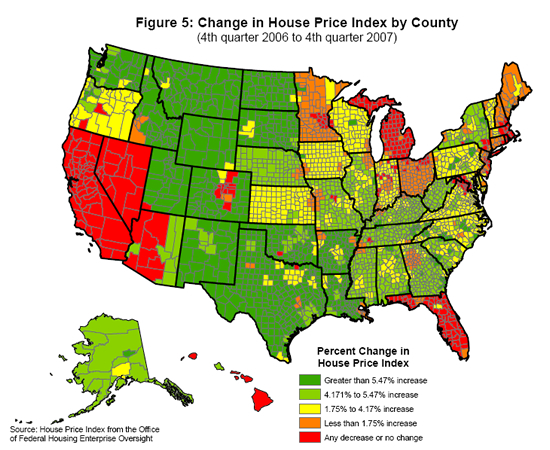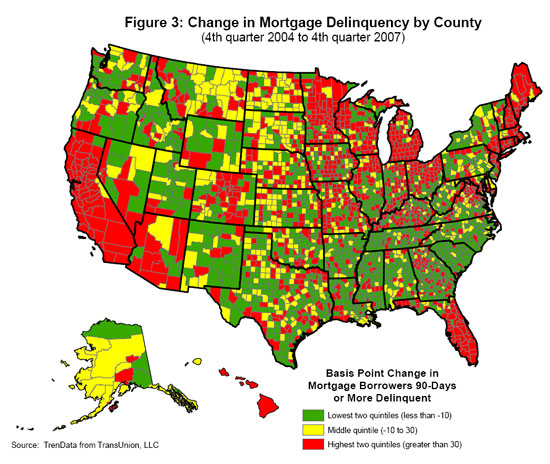WNYCongress
Leader Op-Eds and Letters
Mon, 05/12/2008 - 08:44 — RottenchesterReader Elmer sends today's Corning Leader Opinion Page [pdf], which contains an op-ed from Randy Kuhl and a letter from Eric Massa.
Kuhl's op-ed is a protest of the Democrats' plan to bring the Iraq Supplemental up for a vote without committee action or much meaningful debate. At one point in the op-ed, Kuhl compares Nancy Pelosi's conduct with that of "oppressive regimes".
While I don't doubt that a little more bi-partisan agreement might make the House a better place, I wonder about Kuhl's choice to use an entire op-ed to bring up procedural issues. The House is like a sausage factory: the process can be pretty ugly and might even turn some people into vegetarians, but in the end, most people only care whether the sausage is any good. As Eric Massa points out in his letter, gas prices are up and employment is down. That's the sausage, and no matter how it's made, it isn't very tasty.
Leader Energy Story
Fri, 05/09/2008 - 16:51 — RottenchesterReader Elmer sends today's Corning Leader front-page [pdf] story (jump [pdf]), which contains Kuhl's reaction to a DCCC press release about energy.
The DCCC claims that Kuhl is a friend of big oil, and uses two facts to back that up. First, it claims that Kuhl has received $29,600 from oil companies. Second, it claims that Kuhl voted against a bill that would end taxpayer subsidies for big oil.
Kuhl questioned the accuracy of the first charge, but according to OpenSecrets, he received $29K from energy and natural resource companies in the 2006 cycle. In the current cycle, he's received a tenth of that, but the real arm-twisting hasn't started yet.
The vote that the DCCC is talking about happened this Spring, on the Energy Bill. The summary from non-partisan Project Vote Smart, includes this:
-Prevents tax deductions to major integrated oil companies for income resulting from the domestic production of oil and gas (Sec. 301).
Kuhl also supports a cut in the gas tax and drilling in ANWR, both of which aren't solutions, as I've discussed earlier.
Kuhl's Safe Housing Vote (In Pictures)
Fri, 05/09/2008 - 07:59 — RottenchesterRandy Kuhl's vote against the Housing Bill yesterday will not become a campaign issue in the 29th. The main provision of the bill would let the FHA re-insure underwater mortgages if the mortgage holder (bank) agrees to reduce the principal to 85% of the current home value.
In other words, in return for taking a loss, the bank gets the mortgage off their books. Since the homeowner must re-qualify for the loan, this program also weeds out borrowers who can't pay the new mortgage.
The reason this bill won't be an issue in the 29th is that we don't have many underwater borrowers. Take a look at this graph:

As you can see, the 29th had a small increase in house pricing. The sunbelt states and urban growth areas, where speculation was widespread, are where the prices are falling. The 29th is also doing fairly well in mortgage delinquency:

We seem to be able to pay our mortgages in the 29th, at least when compared to boom areas.
Whether Kuhl's vote was the right thing to do is worth debating, but, politically, I don't see a downside in his decision to stick with the rest of his party and vote against the bill.
(Graphs from the Federal Reserve via the excellent Calculated Risk blog.)
Howard Dean is Coming to Town
Fri, 05/02/2008 - 08:49 — RottenchesterNew Massa Ad
Thu, 05/01/2008 - 13:18 — RottenchesterThe Massa Campaign has released a new YouTube ad about the Iraq War to commemorate the anniversary of "Mission Accomplished". The ad is interesting because it hits both the real cost and the opportunity cost of the war, two issues which will no doubt be on center stage during the campaign this fall.
Houghton Endorses Kuhl
Wed, 04/23/2008 - 16:12 — RottenchesterNorth vs. South in the 29th
Wed, 04/23/2008 - 09:50 — Rottenchester
Two years ago, Wal-Mart was interested in building a superstore in Lima, just over the district border. Residents in nearby Mendon, a Rochester exurb full of sprawling homes and horse paddocks, began a campaign against Wal-Mart that has been successful.
Today, there's no superstore in Lima, and Muffy and Biff are happy that they can still drive their Volvo to the local hardware store in Mendon to buy fencing wire for their stable. There's no superstore in Bath, and the town's deputy supervisor is "disappointed, very disappointed."
NY-29: 2008 So Far
Sun, 04/20/2008 - 09:52 — RottenchesterIn April 2006, former Navy Commander Massa had raised $250K and was just beginning to get his campaign organization together. This cycle, Massa is pushing $900K, he's had campaign staff on board for months, and he's become a fixture as the head of the loyal opposition in the Southern Tier.
In 2006, at the end of his Freshman term, Randy Kuhl's fundraising report was full of "automatic" PAC donations from corporations that had business with the committees upon which he sits. Kuhl also received some money from labor because of his pro-labor history in the New York Senate. This time around, Eric Massa has already garnered an AFL-CIO early endorsement, and Kuhl is $150K off his 2006 moneymaking pace.
One of the cornerstones of Kuhl's 2006 campaign was his proud claim that he held yearly constituent meetings in every town in the 29th. In the Northern 29th, which contains the affluent, more Democratic Rochester suburbs, those meetings were the subject of anti-war protests in 2007. This year, Kuhl changed the format of those meetings to constituent meetings, by appointment only. This move has been controversial and certainly will be a campaign issue.
In 2006, Kuhl's twenty-year relationship with the Southern Tier media generally guaranteed that his press releases and conferences were well-covered, and that his message went out without being challenged. Today, while Kuhl's minor photo ops still generate press, stories based on his substantive press releases are usually contested with quotes from Eric Massa. Kuhl's op-eds are also balanced by Massa op-eds or letters to the editor. Massa is often quoted in Southern Tier papers when reporters need a local opinion on national issues like Iraq, or if they want a prominent Democrat's view on the primary contest.
Media coverage in the Northern 29th is a different story. Because Monroe County (Rochester and its suburbs) contains parts of four Congressional Districts, Kuhl or Massa are infrequently mentioned in the local media. Print coverage by the dominant local paper, Gannett's Democrat and Chronicle, is especially light after rounds of cutbacks and resource re-allocation. Television coverage is also rationed between the four area seats, and neither Massa nor Kuhl spend much time on Monroe County screens.
Local party support in the 29th is generally weak for Democrats and strong for Republicans. The Monroe County Democratic Party's strength comes from urban Rochester, which isn't part of the 29th. In the recent legislative elections, Democrats fielded some good candidates but were still mainly beaten in the suburbs. Part of the reason for this loss was the inability of the sclerotic MCDC organization to field a candidate for County Executive. This allowed incumbent Maggie Brooks to use her warchest to retain a one-vote majority in the county legislature.
Though Massa can expect almost zero support from the weak and inwardly-focused MCDC, he got an unexpected boost from Brooks, whose misnamed FAIR tax-reallocation plan is enormously unpopular in the suburbs. Suburban school districts were recently victorious in a court battle to overturn the plan, which would have caused multi-million dollar shortfalls at schools that regularly make nationwide top-100 lists.
The Southern Tier Democratic Party organizations have generally had it tough in the most Republican part of New York State. In Corning, Massa's home, Democratic Mayor Frank Coccho lost a re-election bid in 2007, and there are few Democrats in city or county offices in the rest of the Southern Tier. As a charismatic leader who actively participates in city and county elections, Massa's popularity with Southern Tier Democrats remains high. Massa's hard work on behalf of local committees was rewarded with speedy and unanimous endorsements by Southern Tier committees when David Nachbar, a Rochester businessman, began organizing his quickly-aborted primary challenge.
As a fixture in Southern Tier politics for more than two decades, Randy Kuhl can expect the same high level of support in 2008 from Southern Tier Republicans as he's enjoyed almost 30 years of State Senate and Congressional races. He will also get a boost from Steve Minarik's Monroe County Republican Party. Minarik, a highly-disciplined and ruthless pro, recently purged the Republican committee in the town of Mendon, an affluent Monroe suburb, after that party lost some seats in the town election. Minarik's housecleaning and leadership will serve Kuhl well, and he can expect strong turnout from 29th district Republicans in Monroe County and the Southern Tier.
With no primary challenge expected in either party, Kuhl and Massa will be able to concentrate their efforts on the Fall election. Massa has already been challenging Kuhl to debates at every opportunity. At this point in the race, it appears that Republicans are unable to field good candidates in NY-25 and NY-26. This means that the 29th might be the hardest fought contest in New York this Fall.